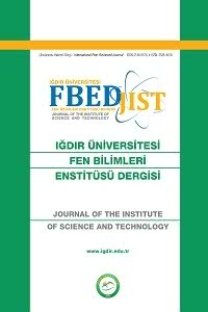Waste Characterızatıon of Karaman Provınce and Determınatıon and Comparıson of Indıvıduals' Waste Approaches
Waste Characterızatıon of Karaman Provınce and Determınatıon and Comparıson of Indıvıduals' Waste Approaches
The most basic building block of solid waste management is to determine the amount of waste generated by individuals in a day. As it can be understood from here, the most important issue in solid waste management is individuals. Therefore, all kinds of waste management studies should be based on the individual. In our study, a questionnaire was applied to 1 263 people residing in Karaman. In addition, according to income levels, 5 pilot regions were determined and characterization studies were carried out in different time periods. Of the wastes generated as a result of characterization, 45.08% of kitchen wastes, 3.41% of park and garden wastes and 30.36% of recyclable wastes. Only 18.6% of the recyclable waste potential is collected with the existing system. Within the framework of the survey, the rate of those who collect recyclable waste separately is 21%. In addition, it is understood from the survey study that individuals do not know what type of waste is produced in their homes. In this framework, waste collection and evaluation suggestions were presented by determining the waste potentials with the characterization study and the individual attitudes with the survey study.
Keywords:
Integrated Zero Waste, Waste Characterization, Waste Attitudes of Individuals Recycle, Karaman,
___
- Anonymous-1. (2021). Environmental friendly neighbor card application. URL: https://www.cevrecikomsukart.com (accessed date: 20.01.2021)
- Anonymous-2. (2021). General information about waste. URL: https://webdosya.csb.gov.tr/db/bolu/icerikler/atiklar-20180222082452.pdf (accessed date: 20.06.2021)
- Anonymous-3. (2021). Environmental and energy statistics. URL: https://data.tuik.gov.tr/Kategori/GetKategori?p=cevre-ve-enerji-103&dil=1 (accessed date: 20.06.2021)
- Aygül, H.H. & Yıldız, D. (2018). Kentsel Katı Atık Yönetimi Kapsamında Çevreci Komşu Kart Uygulaması. Mediterranean Journal of Humanities, VIII/2, 79-100. DOI: 10.13114/MJH.2018.411.
- Bilim Sanayi ve Teknoloji Bakanlığı, (2014). Ulusal Geri Dönüşüm Strateji Belgesi ve Eylem Planı 2014-2017. Bilim, Sanayi ve Teknoloji Bakanlığı. Ankara.
- Büyüköztürk, Ş. (2018). Veri Analizi El Kitabı. Pegem Akademi Yayınları, 21-30.
- Çevre, Şehircilik Ve İklim Değişikliği Bakanlığı (ÇŞB) (2021). Karaman ili 2021 yılı çevre durum raporu. Karaman
- Demir, K. (2019). Adana İlinde Sıfır Atık Projesinin Uygulanması, Yüksek Lisans Tezi. Nevşehir Hacı Bektaş Veli Üniversitesi Fen Bilimleri Enstitüsü, Nevşehir.
- Erdem, M.A. Çubukçu Ercan, E. Ateş, E. & Erdoğan, D. (2008). AB Uyum Sürecinde Evsel Katı Atıkların Entegre Yönetimi. Kent Yönetimi, İnsan ve Çevre Sorunları'08 Sempozyumu, İstanbul.
- Gödel, R. (2019). Entegre Katı Atık Yönetimi; İnegöl Örneği. Yüksek Lisans Tezi, Süleyman Demirel Üniversitesi Fen Bilimleri Enstitüsü, Isparta.
- Gürer, N. & Demirci, B. (2020). Yerel Yönetimlerde Sosyo-Ekonomik Gelişmişlik Seviyeleri ile Hizmet Talebi Arasındaki İlişki: Antalya Muratpaşa Belediyesi Örneği. Kent Araştırmaları Dergisi (Journal of Urban Studies), 30, 11, 2020-2, 767-794, DOI: 10.31198/idealkent.681828.
- Kemirtlek, A. (2005). Entegre Katı Atık Yönetimi. İSTAÇ A.Ş., İstanbul.
- Köse, N. Sun, D. Tulum, M. Türegün, A.Y. Yamaner, C. Kırca, Ö. & Süral, H. (2015). Geri Dönüştürülebilir Ambalaj Atıkları Yönetim Sistemi Tasarımı. Endüstri Mühendisliği Dergisi, 26, 2, 35-51.
- McDougall, F.R. & White, P. (2001). Integrated solid waste management: A life cycle inventory, Blackwell Science, Oxford, UK.
- Özcan, H.K. Borat, M. & Bayat, C. (2005). Katı Atık Depo Sahası Gazları ve Çevresel Etkileri. Mühendislik Bilimleri Genç Araştırmacılar Kongresi, MBGAK’05, İstanbul.
- Öztürk, İ. (2015). Katı Atık Yönetimi ve AB Uygulamalar. İSTAÇ A.Ş. Teknik Kitaplar Serisi-2, İstanbul.
- Sakai, S. Sawell, S.E. Chandler, A.J. Eighmy, T.T. Kosson, D.S. Vehlow, J. Sloot, H.A. & Hjelmar, O. (1996). World Trends in Municipal Solid Waste Management. Waste Management, 16, 341.
- Tchobanoglous, G. Theisen, H. & Eliassen, R. (1977). Solid wastes: Engineering principles and management issues. McGraw-Hill, New York.
- TÜDAM (2016). Gerı̇ Dönüşüm Sektörü Teşvı̇k Raporu 2016, Ankara.
- Ulaşlı, K. (2018). Geri Kazanılabilir Atıkların Yönetimi Ve Sıfır Atık Projesi Uygulamaları: Kadıköy Belediyesi. Yüksek Lisans Tezi, Hasan Kalyoncu Üniversitesi Fen Bilimleri Enstitüsü, Gaziantep.
- Yenice, K.M. Doğruparmak, Ç.Ş. & Durmuşoğlu, E. (2009). Kocaeli İli Katı Atık Karekterizasyonu. Türkiyede Katı Atık Yönetimi Sempozyumu, TÜRKAY, Kocaeli.
- ISSN: 2146-0574
- Yayın Aralığı: Yılda 4 Sayı
- Başlangıç: 2011
- Yayıncı: -
Sayıdaki Diğer Makaleler
Suzuki-Miyaura Coupling Polymerization: Synthesis, Characterization and Optical Properties
Genome-wide Development and Physical Mapping of SSR Markers in Sugar Beet (Beta vulgaris L.)
Organik Tarım Pazarlama İşletmelerinin Sermaye Yapıları ve Finansal Analizleri
Kemalettin AĞIZAN, Zeki BAYRAMOĞLU
The Complex-type Narayana-Fibonacci Numbers
Doğrusal Olmayan Adsorpsiyon İzoterm Modellerinin Hata Analizi ile Optimizasyonu
Tarım ve Mera Alanlarında Rüzgâr ve Güneş Enerji Sistemleri Kurulması Hakkında Değerlendirmeler
Emre BIÇAKÇI, Cahit BALABANLI, Emrah ACAR
Adnan BALKAYA, Abdullah GÜLLER, Mustafa USTA, Zeynelabidin KURT
